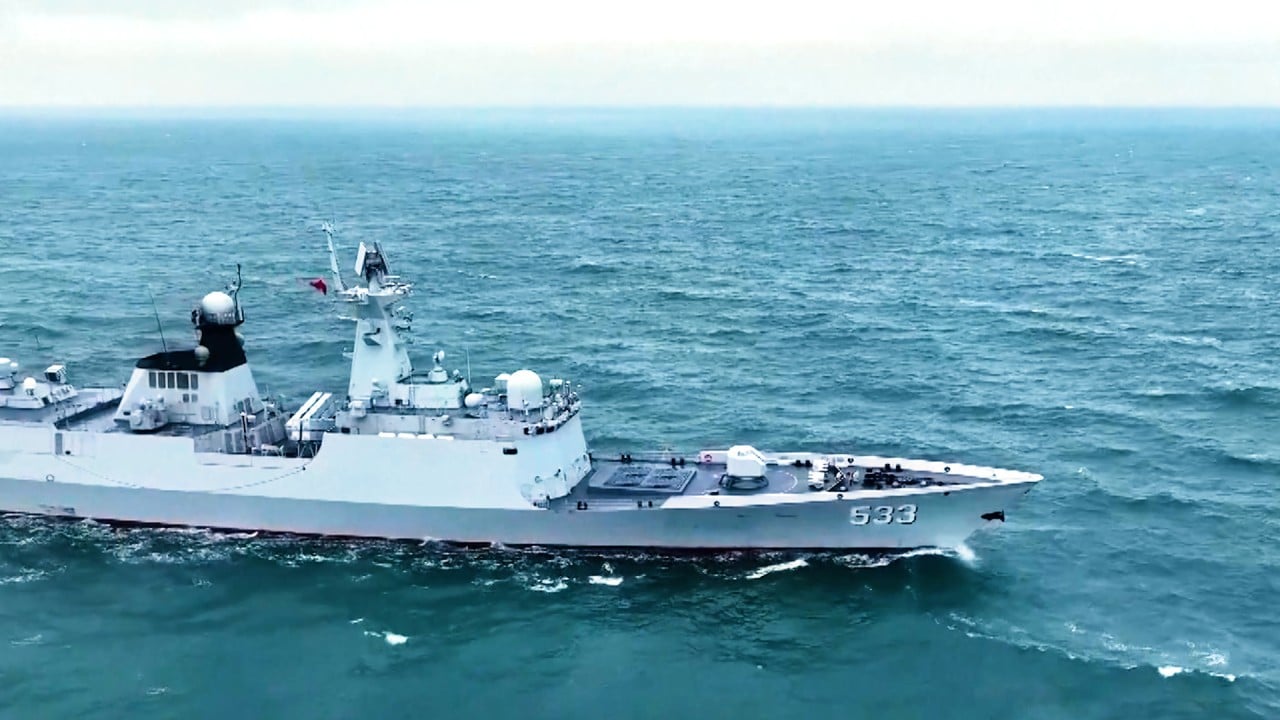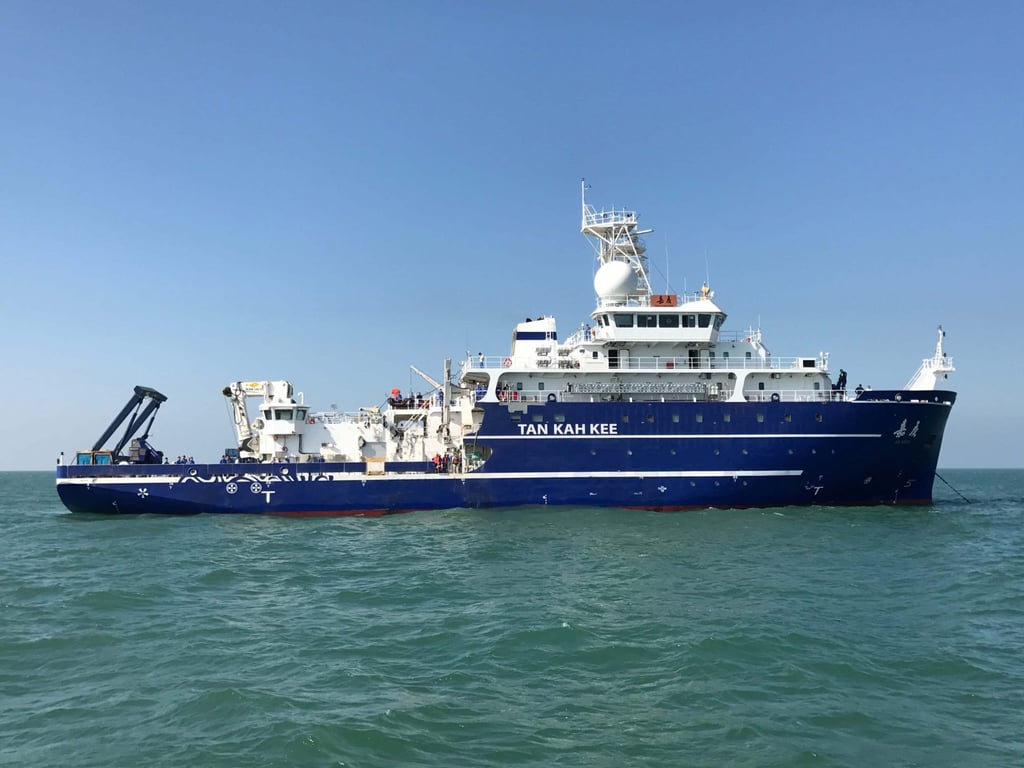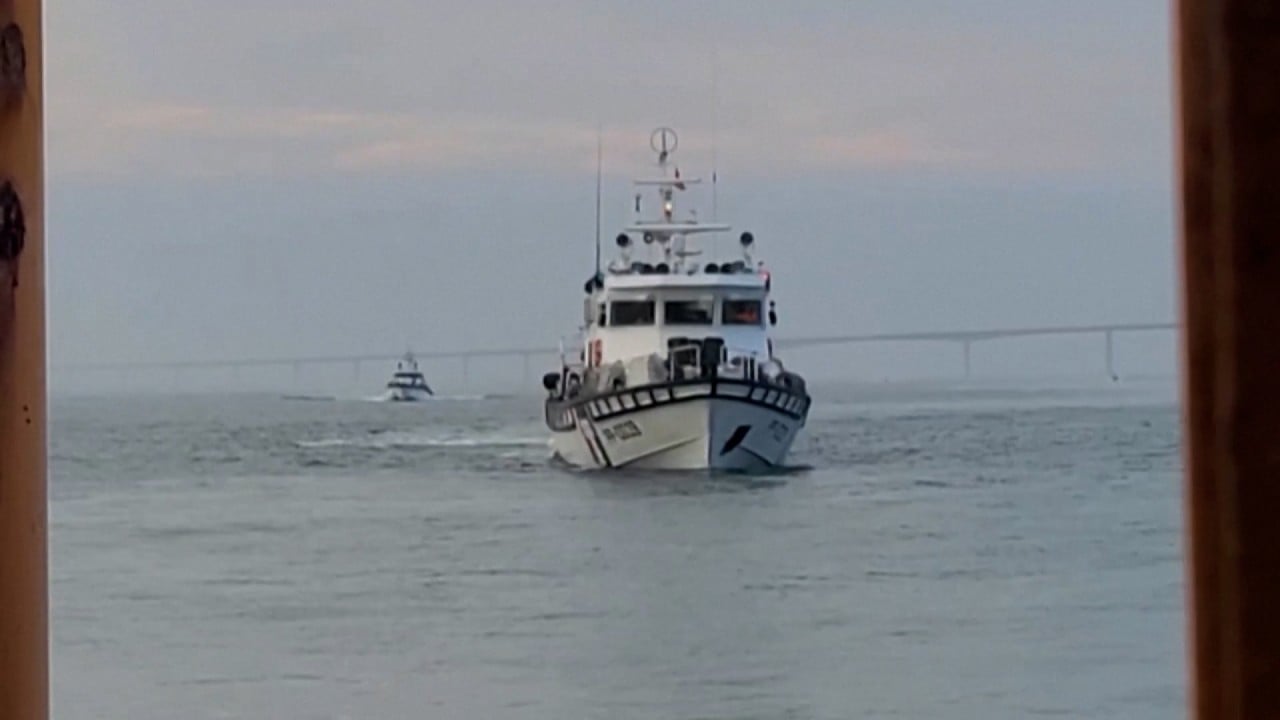
03:11
Mainland China launches PLA blockade around Taiwan, 3 days after William Lai speech
Taiwan’s ‘options limited’ as Beijing steps up grey zone pressure from skies to sea
- Analysts warn against ‘unintended conflict’ as string of maritime incidents reveal Beijing’s aim to deny Taiwan’s ‘right to administrate’
In the latest such face-off, a mainland Chinese research ship came within 20 nautical miles (37km) of Taiwan’s northeastern Yilan county on July 7 before being warned off by Taiwanese coastguard.
The Tan Kah Kee, also known as the Jia Geng, is a 3,600-tonne seismic vessel equipped with acoustic sensors and weather radars, and is capable of launching uncrewed submarines for ocean floor mapping.

Taiwanese security chief Tsai Ming-yen said that the Jia Geng “did not deploy any underwater devices while near Yilan” and was likely to have been “collecting hydrological data”.
However, Tsai did not rule out the possibility that the sailing was part of the mainland’s grey zone or non-military operations at sea to pressure Taiwan.
The Taiwanese coastguard said its attempt to stop the detention was blocked by seven mainland vessels. It also alleged that the detention was politically motivated, as it took place in what was traditionally known as “common fishing ground” within the territorial waters of mainland China. It was the first such detention since 2007.
Chen said the stepped-up coastguard patrols and detention of the fishing boat could be seen as Beijing’s “de facto maritime law-enforcement” over Taiwan, to create the impression of substantial “ruling and regulatory” power over the island.
Max Lo, executive director of the Taiwan International Strategic Society, a think tank in Taipei, also noted that Beijing had extended its grey zone pressure from the air to the sea, and was “seeking to assert its jurisdiction over our sky and waters”.
Earlier this year, a Taiwanese cruise ship was briefly boarded by mainland coastguard in waters off Quemoy, a Taipei-controlled defence outpost also known as Kinmen, just 5km (3 miles) from the mainland city of Xiamen. The February 19 incident was slammed by Taiwan’s Ocean Affairs Council as “unacceptable”.
Taiwan also says a 25-year-old active-duty soldier from the Quemoy garrison remains in mainland custody. His boat drifted into mainland waters in foggy weather while on a fishing trip with a civilian friend in March. The friend was released but the soldier held on accusations of “intentionally” hiding his occupation.
The string of incidents follow the deaths of two mainland fishermen, whose unregistered boat capsized near Quemoy after the Taiwanese coastguard gave chase on February 14.
Hsieh Ching-chin, deputy director general of the Taiwanese coastguard, said the seizure of the fishing boat and its crew on July 2 was linked to the new regulations that took effect two weeks before, as he pledged “increase patrols to safeguard fishing vessels”.
Meanwhile, there have been reports of multiple mainland coastguard vessels patrolling near or even within waters off Quemoy almost daily since February.
“This situation greatly exhausts our coastguard,” Lo said. “[It is] similar to the strain faced by our air force, as they need to dispatch [units] to monitor and warn off the mainland vessels.”
There was also the risk of triggering “unintended conflict”, he warned.
“Sending our coastguard vessels to engage the mainland patrol ships would only further escalate cross-strait tension,” Lo said. If there was no improvement in ties, “stand-offs like this could eventually ignite unintended conflict”.
The Taiwanese side was also likely to be no match for the mainland coastguard, reportedly the largest in the world, Lo pointed out.
Some analysts have suggested that Taiwan could seek international support on the matter, particularly from the United States.
But both Chen and Lo were sceptical of that possibility.
“The effectiveness of such efforts may be limited, especially with the coming US presidential election,” Lo said. “President Joe Biden is unlikely to welcome any potential change in the cross-strait status quo that could impact his re-election bid.”
Chen said the US was “not interested in getting involved in this level of grey zone tactics”, noting how Washington had maintained its distance despite frequent face-offs in the South China Sea between rival claimants Beijing and the Philippines, a US treaty ally.
Beijing sees Taiwan as part of China to be reunited by force if necessary. The US, like most countries, does not recognise Taiwan as an independent state, but is opposed to any attempt to take the self-governed island by force and is legally bound to supply it with defensive weapons.
Cross-strait ties have worsened since William Lai Ching-te, also of the DPP and denounced by Beijing as an “obstinate separatist”, was elected to succeed Tsai in January.
Lai’s inaugural address on May 20 provoked Beijing further, after he declared that Taiwan and the mainland were “not subordinate to each other.” In response, Beijing launched large-scale military drills around Taiwan, simulating a blockade.
Eric Chu Li-luan, the chairman of Taiwan’s main opposition party Kuomintang (KMT), says growing cross-strait tensions are taking a toll on ordinary Taiwanese.
Chu and Ko Wen-je, the leader of the smaller opposition Taiwan People’s Party, have called for improved communication between the Lai administration and Beijing to address their disputes.


